In this blog post, Osita Kirti Ranjan, a student of Vinoba Bhave University, Jharkhand writes about section 498A of India Penal Code, 1860 and tries to portray two characteristically different sides of the same provision in the context of the Indian society. She tries to explain the legislative intent of enacting the provision and compares it with the actual implications of implementation of this provision India today.
A woman has predominantly been at a disadvantageous position in the society. She has to go through many obstacles at every stage of her life. But her life becomes worse when she is married to a wrong person and is subjected to cruelty. Not only her husband but the relatives of her husband also start demanding dowry. They coercively demand money, jewelry, any property or a share in the property.
If she fails to fulfill their unlawful demands, then she is harassed and has to face mental and physical cruelty. Often she ends up committing suicide due to depression or is murdered by her in-laws. This is the very pathetic condition of unnatural death of young girls. It is a criminal offense, and the entire family can be jailed under Section 498A of India Penal Code based on a complaint in the police station.
Section 498A was introduced in the Indian Penal Code by Criminal Law (second Amendment) Act, 1983. It was brought with the view of curbing domestic violence, marital violence and to protect women from dowry harassment and abuse committed by husband or in-laws.
Legal aspect of Section 498A
Section 498A states that – Whoever being the husband or relative of husband of the woman, subjects such woman to cruelty shall be punished with the imprisonment for a term which may extend to three years and also be liable to fine.
Explanation- for the purpose of this section, “cruelty” means-
- Any willful conduct which is of such nature as is likely to drive the woman to commit suicide or to cause grave injury or danger to life, limb or health (whether mental or physical) of the woman; or
- Harassment of the woman where such harassment is to (or “intending to”) coercing her or any person related to her meet any unlawful demand for any person related to her meet such demand.
Analysis of the section shows that the following amounts to cruelty:
- Any conduct that is likely to drive a woman to suicide
- Any conduct which is likely to cause grave injury to the life, limb or health of the woman,
- Harassment with the purpose of forcing the woman or her relatives to give some property.
- Harassment because the woman or her relatives are either unable to yield to the demand for more money or do not give some share of the property.
Section 113A of Indian Evidence Act
This has been added to the Indian Evidence Act to raise plausibility either dowry death or abatement to suicide of a married woman. This section shall have the same meaning as defined in section 304B of IPC. The acknowledged object is to combat the menace of dowry death and cruelty.
-
Cruelty: An evil
Kaliyaperumal vs. State of Tamil Nadu
It was held that cruelty is an essential common element in offenses under both the sections 304B and 498A of IPC. Both these offenses are distinct, but one who is convicted for dowry death can also be convicted for 498A of IPC. Section 304B does not define the meaning of cruelty, but the meaning of cruelty and harassment gave in Section 498A applies in section 304B as well.
-
Kinds of cruelty covered under this section as follows:
- Cruelty by vexatious litigation
- Cruelty by deprivation and wasteful habits
- Cruelty by persistent demand
- Cruelty by extra-marital relations
- Harassment for non-dowry demand
- Cruelty by non-acceptance of baby girl
- Cruelty by false attacks on chastity
- Taking away children
-
Misuse of 498A
Every coin has two sides. There is no doubt that this law has helped many women get justice, but this scenario is changing. This shield is becoming a weapon for the disgruntled wife to take revenge from her husband. It has become the easiest way to get out of the marital institution. Now-a-days social conditions have changed. Women do not hesitate to establish physical relationship men other than her husband. When they are involved in adultery and are caught in that act, then they smartly cover up their wrongdoing with dowry harassment to get social sympathy. On the other hand, some wives want control over their husband. They compel their husband not to support his family and break his bonds with them and give up his responsibilities. His failure to do so will result in a 498A case against him. If her parents fail to marry her to a guy of her choice, she uses 498A as a weapon to get out of the marriage arranged by her parents.
Rajkumar vs. State o f M.P 120 of 2004
Wife was murdered brutally in her room. Her husband was accused under Ss. 498A and 302 of IPC. There was a deficiency of evidence material enough to prove the allegation against the accused husband. It was held that mere doubt against a man is not enough for conviction.
Judiciary and police department
We always talk about gender equality but what happens when an innocent husband is trapped by his greedy wife and her relatives. Husband is beaten up by his wife or her relatives. Sometimes such an injury can be very fatal. But the judiciary does nothing against wife and her relatives. Wife and her relatives are given a free license to engage in atrocious behaviour in the name of 498A. First, they commit the crime and then file a complaint of 498A to cover it up. Despite that, judges do not follow the due process in such cases and allow any number of adjournments to the wife when she does not attend the court hearings. Also, judges do not dismiss the case when the wife does not attend the court for several years. Judiciary should stop working as an agent for such a wife.
On the other hand, police arrest the accused husband without proper investigation and they try to make money and demand a bribe from both the sides. They go to husband’s place of occupation and insult him in public and harass him. There is huge corruption in the system. Interim bail does not provide any relief to the husband because he will ultimately be put behind the bars with the help of his wife or her relatives and alleged police officers. It is observed that bed-ridden mother-in-laws and father-in-laws are made accused of this section. Sister-in-laws living in abroad are also being accused under dowry laws. This is an absolute injustice to the husband if he is innocent.
Amendment is needed
The Delhi High Court urged the government to review the provisions. Judge J.D. Kapoor urged the government to review this law while rejecting the plea by Savitri Devi seeking for the arrest of her brother-in-law and sister-in-law. He also added that this provision was implemented with the good intentions but after a passage of time it is giving a bad taste and hitting the foundation of marriage itself, and it is not good for the health of society at large.
Delhi High Court also added that Ss. 498A and 406 of IPC should be made bailable because this is becoming a tool for demand of ransom. Some people treat it as legal terrorism. It was reported that about 35% rise in deaths of husbands was due to them being caught in dowry disputes during 2007-09. Dowry deaths in case of women grew by just about 3.5% during the same period. The act of appellant in filing a false complaintamounts to cruelty and can be ground to the dissolution of marriage. Besides, this section should be turned into a compoundable. If parties are ready to solve their dispute by deciding to put an end to their marriage by mutual divorce then, it should be allowed.
Supreme Court has come to the rescue of all such families who have falsely been arrested on such charges. The Supreme Court ruled that the police cannot arrest accused in such cases automatically, and it must give reasons for taking such steps which would be judicially examined. SC directed all State governments to ensure that police do not resort to arresting in all offenses punishable up to seven-year jail term including dowry harassment cases.
Conclusion
It is very essential to protect a woman in the patriarchal system, but it does not mean that justice is only meant for women. Article 14 of Constitution is to be upheld as well. There should not be any form of gender bias. There is an extreme need to review some provisions under Section 498A so that innocent men and their families do not suffer because of a disgruntled wife.
 Serato DJ Crack 2025Serato DJ PRO Crack
Serato DJ Crack 2025Serato DJ PRO Crack


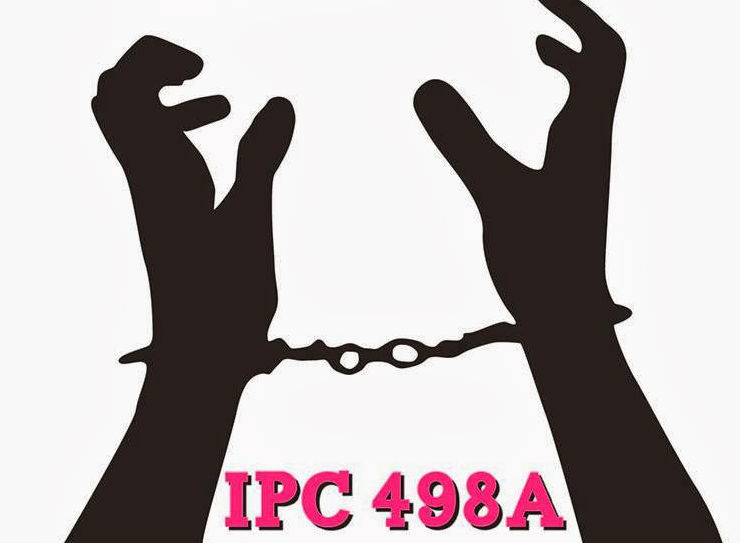
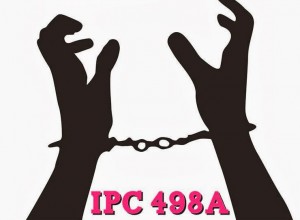


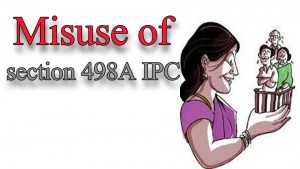
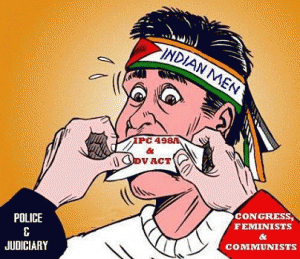
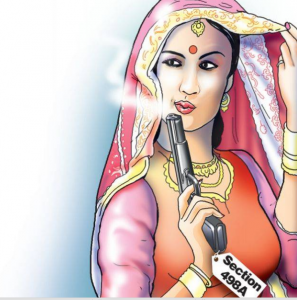




 Allow notifications
Allow notifications


